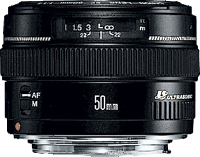| | Our Products: | | | | Angle Viewfinder VIDEOS | | | | | | | |
|
 |
Sorry, information not found |
|
|
|
|
|
|
 | | Friday, January 16, 2009 | | Only for professionals? | I have a friend who loves camera gear. He has a recent DSLR and several professional series fast zoom lenses. All quiet beautiful, big, impressive and expensive. I asked him if he had ever thought of using a 50mm prime lens.
“My skill isn’t high enough to handle a prime 50mm lens. They are only for professionals,” he replied. “That’s why I have three zoom lenses, much easier to handle.”
As a youth I was introduced to photography by my uncle who had (if my memory serves me right) a Nikon SLR and 3 prime lenses - 28mm, 50mm, and a 120mm. They served him well for many years. I ended up being a Canon guy, as it was a Canon AE1 that I inherited from my dad that he seldom used. It came with the standard issue 50mm 1.8. As a youth, with little money to buy more lenses (let alone film and processing), I shot only with the 50mm, only dreaming of owning a “big zoom” one day.
 After a few years I bought my first zoom, a 4.5-5.6 70-200mm Canon zoom lens. I proudly hung my big new gun over my shoulder, often clipping on a large black lens shade to enhance its prowess. But to my dismay I was dogged by the slowness of the lens. With my 50mm I was hand holding down to 1/15 of a second and getting great shots. I missed the shallow depth of field and the small size. The zoom lens was big and heavy, pictures were often blurry and under exposed. People ran for cover when I pulled it out. On the outside, I loved the manliness and respect that came with the big black zoom. Not to say it wasn’t great for a bright day outside. But on the inside, I was frustrated with its trade-offs.
After college I started assisting local professional photographers part-time. Two in particular - one a commercial photographer, his forte was corporate and editorial portraits. The other, a talented wedding photographer who fell in love with every wedding she went to. They both had a lot of gear - medium and 35 mm format - but between the two of them, not one zoom lens.
So what’s my point? I guess my point is you don’t need $1500 zoom lenses to take good pictures. And second, a cheap zoom lens will help you take worse pictures. After a few years I bought my first zoom, a 4.5-5.6 70-200mm Canon zoom lens. I proudly hung my big new gun over my shoulder, often clipping on a large black lens shade to enhance its prowess. But to my dismay I was dogged by the slowness of the lens. With my 50mm I was hand holding down to 1/15 of a second and getting great shots. I missed the shallow depth of field and the small size. The zoom lens was big and heavy, pictures were often blurry and under exposed. People ran for cover when I pulled it out. On the outside, I loved the manliness and respect that came with the big black zoom. Not to say it wasn’t great for a bright day outside. But on the inside, I was frustrated with its trade-offs.
After college I started assisting local professional photographers part-time. Two in particular - one a commercial photographer, his forte was corporate and editorial portraits. The other, a talented wedding photographer who fell in love with every wedding she went to. They both had a lot of gear - medium and 35 mm format - but between the two of them, not one zoom lens.
So what’s my point? I guess my point is you don’t need $1500 zoom lenses to take good pictures. And second, a cheap zoom lens will help you take worse pictures.
A fixed prime lens, such as a 50mm 1.8 or a 28mm 2.8, will actually give you more freedom not less. Slow shutter speeds, shallow depths of fields, fast focusing, small in size, light in weight, bright viewfinder, and sharp, sharp images. If you want to zoom just step forward, step back.
Recent lens technology has made zoom lenses lighter, smaller, cheaper and in most cases better than zooms of the past. Image stabilization has greatly lowered acceptable hand holding shutter speeds. But image stabilization also helps prime lenses, taking us to recently unheard handholding shutter speeds – 1/15, 1/8, even ¼ of a second! If you love photography try and pick up a 50mm, 35mm, or 28mm prime lens. You will love the freedom, size, and image quality it will give you.
Something has gone awry when the consensus thinks only masters can handle a prime lens. Quite the opposite!
| |
|  |
|
|
|
|
